Search Images
Browse Content (p. 1304)

Image
Etruscan Mother & Child
A bronze statue of an Etruscan mother and child in typical dress. 500-450 BCE.
Louvre Museum, Paris.
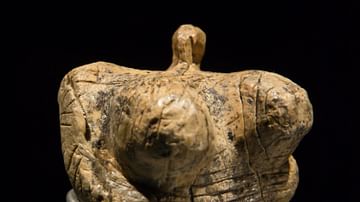
Image
Venus of Hohle Fels
Venus from Hohle Fels, carved from mammoth ivory in the Late- or Upper Paleolithic Aurignacian period and discovered near Schelklingen, Germany. It has been dated to c. 40,000 to c. 35,000 years old.
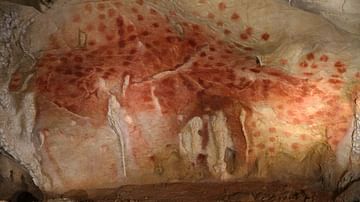
Image
Red Dots Cluster, Chauvet Cave (Replica)
Replica seen in The Cavern of the cluster of red dots seen in Chauvet Cave. The art in Chauvet Cave has been dated to between c. 33,000-c.30,000 years old.

Image
Panel of the Horses, Chauvet Cave (Replica)
Replica of the Panel of the Horses, originally seen in Chauvet Cave. The art at Chauvet has been dated to c.33,000-c.30,000 years old.
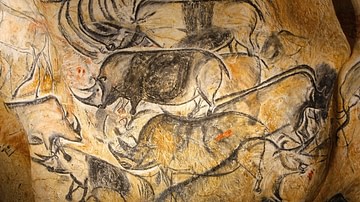
Image
Panel of the Rhinos, Chauvet Cave (Replica)
Replica of the Panel of the Rhinos from Chauvet Cave. The art at Chauvet Cave has been dated to c.33,000-c.30,000 years ago.
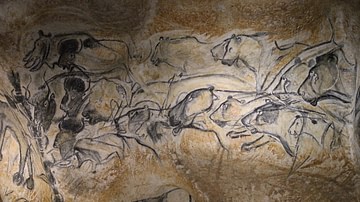
Image
Panel of the Lions, Chauvet Cave (Replica)
Replica of the Panel of the Lions from Chauvet Cave, France, which depicts cave lions hunting bison. The art in Chauvet Cave has been dated to between c. 33,000 and c. 30,000 years old.
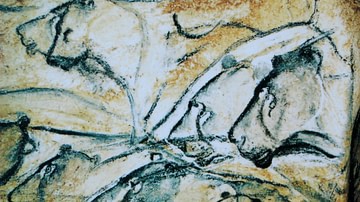
Image
Panel of the Lions (Detail), Chauvet Cave
Close-up of the replica from Brno Museum Anthropos showing the the Panel of the Lions in Chauvet Cave, which depicts a pride of cave lions hunting bison. The art in Chauvet Cave has been dated to between c. 33,000-c.30,000 years old.
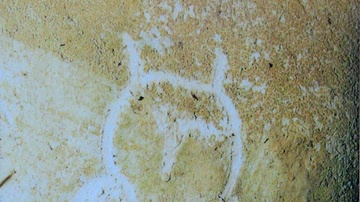
Image
Owl Engraving, Chauvet Cave (Replica)
Replica of the owl engraving from Chauvet Cave, France. The art in Chauvet Cave has been dated to between c. 33,000 and c. 30,000 years old.
Anthropos Pavilion, Brno.
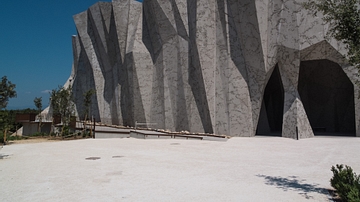
Image
Pont-d'Arc Cavern, Replica of Chauvet Cave
Pont-d'Arc Cavern, a replica of the Chauvet Cave. Near Vallon-Pont-d'Arc, Ardèche, France.

Image
Orion - the Constellation
The constellation of Orion, named after the great hunter of Greek mythology, as can be seen by the naked eye.